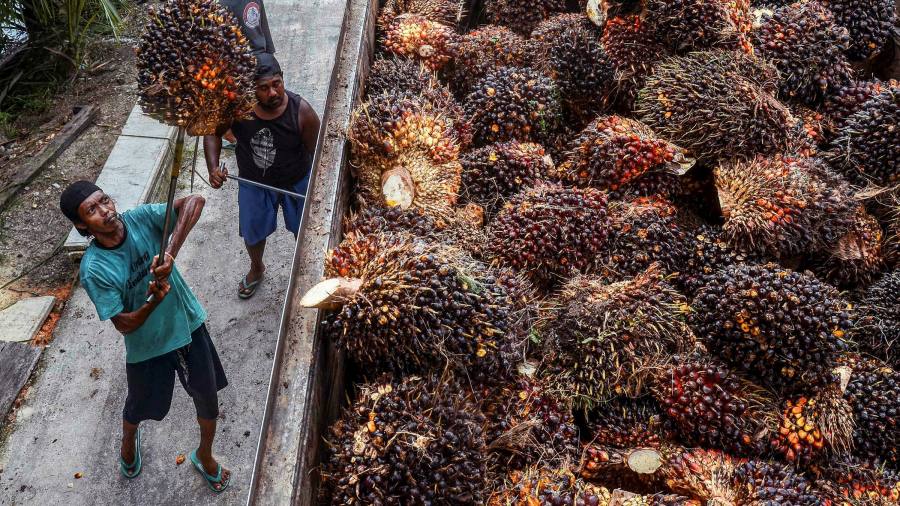Palm oil costs shot increased and the Indonesian rupiah misplaced floor on Monday after Jakarta levied a blanket ban on exports of the edible oil in a bid to comprise surging meals costs on account of the struggle in Ukraine.
The transfer by Indonesia, the world’s greatest exporter of palm oil, is the most recent meals export ban being carried out by international locations all over the world affected by hovering meals costs.
“That is yet one more reminder of the vulnerability current throughout agricultural provide chains in an atmosphere of already traditionally tight inventories, compounded by the indefinite lack of Ukrainian export volumes and traditionally excessive manufacturing prices,” stated Tracey Allen, a JPMorgan analyst in London.
Agricultural commodity costs have jumped after exports from Ukraine, a number one grain and sunflower oil provider to world markets, stopped as a result of struggle.
Benchmark wheat costs in Chicago have risen 21 per cent whereas corn has added 15 per cent, resulting in increased meals import payments for international locations reliant on worldwide markets for his or her grains.
Vegetable oil costs have additionally shot up, with retailers in lots of international locations beginning to ration provides. The UN Meals and Agricultural Group’s vegetable oil worth index has surged 40 per cent this yr.
The tight vegetable oil market has compelled retailers to start out rationing cooking oil. Supermarkets in some European international locations final month began limiting the quantity of cooking oil prospects should purchase, whereas main UK retailers akin to Tesco and Waitrose adopted go well with over the previous few days.
Indonesian president Joko Widodo introduced a complete ban for outbound shipments of the oil on Friday. As markets reopened on Monday, palm oil traded in Malaysia jumped as a lot as 7 per cent to six,800 ringgit a tonne earlier than falling again to six,217 ringgit.
The Indonesian rupiah, which has been largely secure this yr regardless of stress on rising markets from anticipated US price rises, additionally dropped 0.7 per cent to 14,455 per greenback, marking the sharpest each day fall in half a yr.
Though the restrictions would most likely convey down costs in Indonesia, they might drive up costs for importers, together with India and China, stated one analyst. “Clearly it is a adverse for the worldwide client.”
The ban additionally spurred a sell-off for Indonesian palm oil producers, with Jakarta-listed Triputra Agro Persada falling about 7 per cent and rival Astra Agro Lestari down greater than 4 per cent.
Indonesia was already scuffling with a home palm oil scarcity earlier than the invasion of Ukraine, piling stress on the federal government to behave because the world’s largest Muslim inhabitants prepares for feasting through the Eid al-Fitr vacation, recognized domestically as Lebaran.
Earlier this month, college students took to the streets to protest rising inflation, in addition to rumours that Jokowi, because the president is popularly recognized, would search a 3rd time period.
The export ban, which is able to take impact on Thursday, marks the most recent protectionist transfer by Jokowi’s authorities, which had already launched necessities that producers commit a portion of output to home markets and lately raised Indonesia’s palm export levy.
Analysts stated the brand new restrictions had been launched forward of Lebaran vacation in early Might. “We imagine the suspension could be lifted quickly after the passing of the Lebaran festive interval, as consumption demand is ready to normalise thereafter,” stated Lester Siew, an analyst at Citigroup.
Extra reporting by Neil Hume in London

